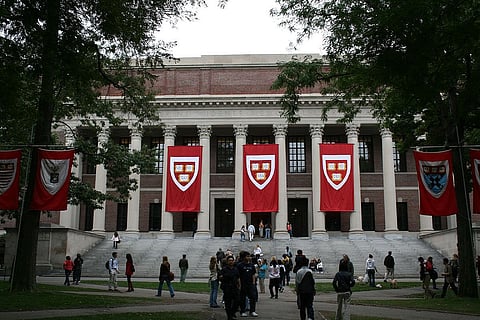

The United States Immigration and Customs Enforcement (ICE) on Monday announced that international students who are in the US on a student visa will be asked to leave if their university switches to only online classes. This move will affect thousands of students across the world, including India, who move to the US on a student visa for higher education.
The Student and Exchange Visitor Program (SEVP) is run by the ICE in the US.
“Nonimmigrant students within the United States are not permitted to take a full course of study through online classes,” the ICE statement said.
“If students find themselves in this situation, they must leave the country or take alternative steps to maintain their nonimmigrant status such as a reduced course load or appropriate medical leave,” the statement added.
The ICE announced that those who have non-immigrant F-1 (student visas) and M-1 visas (non-academic or vocational studies) who are attending schools operating entirely online “may not take a full online course load and remain in the United States.”
However, foreign students who are attending colleges that are looking at a mix of online and in-person classes will be allowed to take more than one class or three credit hours online.
The ICE has said that these schools must certify to SEVP, that the program is not entirely online and that the student is taking the minimum number of online classes required to make normal progress in their degree program.
The US Department of State also said that it will not issue visas to students enrolled in schools and/or programs that are fully online for the fall semester nor will US Customs and Border Protection permit these students to enter the United States.
“Active students currently in the United States enrolled in such programs must depart the country or take other measures, such as transferring to a school with in-person instruction to remain in lawful status. If not, they may face immigration consequences including, but not limited to, the initiation of removal proceedings,” the ICE said.
As per reports, only 9% of colleges in the US are planning to go fully online, while 60% want students to return to campus amid the coronavirus pandemic. Around 24% of colleges are reportedly looking at a combination of both online and in-person classes. The United States is currently the world’s worst hit country due to the coronavirus pandemic.
While not all colleges have taken a decision yet, ICE's announcement has caused confusion and worry among students. Students were asked to vacate student housing when colleges shut down due to the pandemic. Many foreign students, who returned home, now stare at uncertainty over their return to college.
Harvard announced that the Faculty of Arts and Sciences will bring only up to 40% of its undergraduates to campus, including all first-year students, for the fall semester and that first years would return home and learn remotely in the spring.
“We also will invite back to campus those students who may not be able to learn successfully in their current home learning environment,” the university said on Monday. Even with online classes, Harvard will not be changing its tuition fee.
However, Harvard president Larry Bacow has expressed concern over ICE’s decision saying that the guidance issued imposes a blunt, one-size-fits-all approach to a complex problem, giving international students, particularly those in online programs, few options beyond leaving the country or transferring schools.
“This guidance undermines the thoughtful approach taken on behalf of students by so many institutions, including Harvard, to plan for continuing academic programs while balancing the health and safety challenges of the global pandemic. We will work closely with other colleges and universities around the country to chart a path forward. We must do all that we can to ensure that our students can continue their studies without fear of being forced to leave the country mid-way through the year, disrupting their academic progress and undermining the commitments—and sacrifices—that many of them have made to advance their education,” he added.
Princeton University, on the other hand, has said that undergraduate students will return to campus in the fall with a reduced capacity where first-year students and juniors could return to campus, while sophomores and seniors will be asked to return only in the spring semester. Princeton is offering 10% discounted tuition for the school year.
Yale has reportedly said that three of the four undergraduate classes in each semester will live and study on campus, while the rest would take classes remotely.
Bowdoin University announced that only new first-year students, transfer students and those who will have home situations that make online learning not possible and a few senior students who have pre-approved projects that require them to be on campus will be allowed.